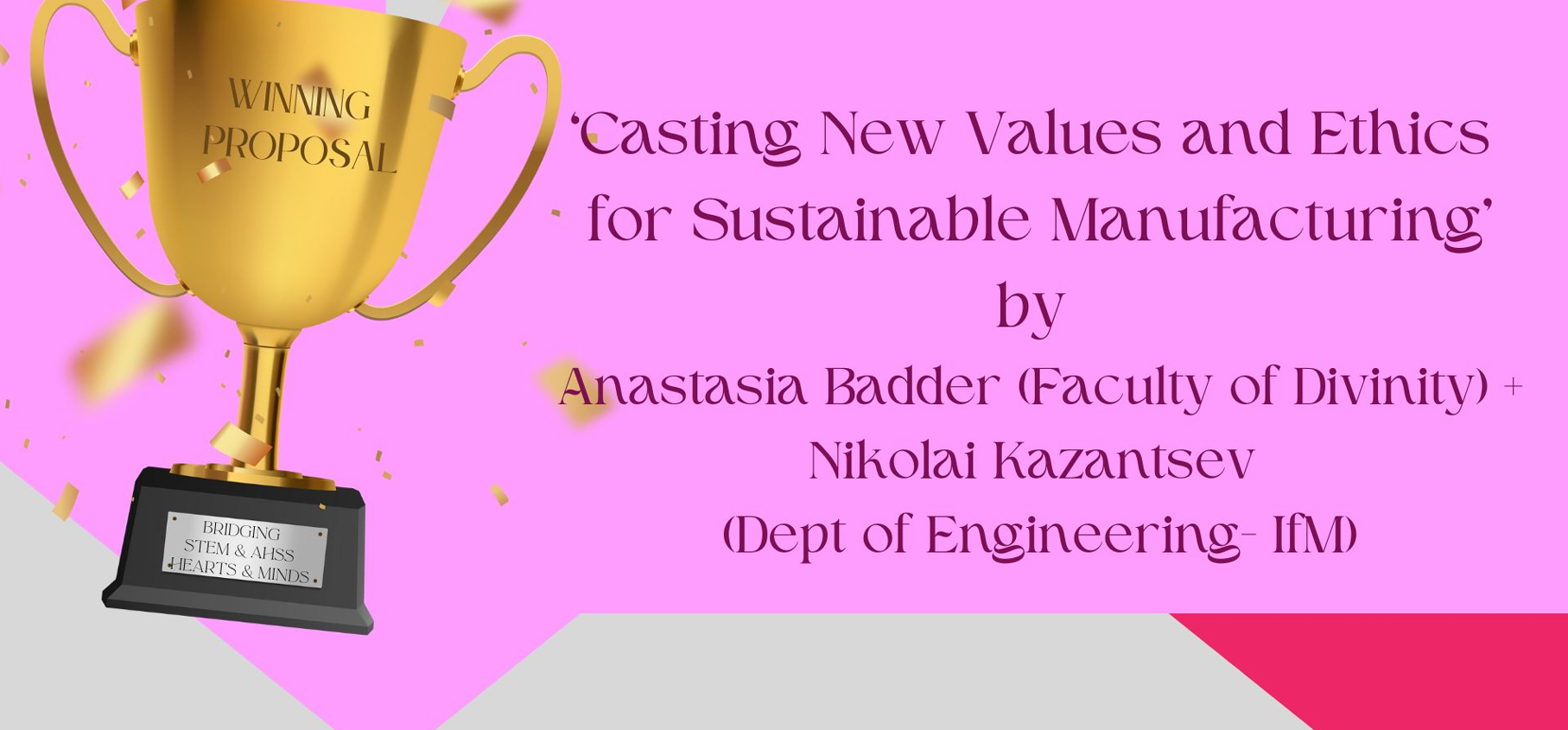
Submitted by Iona C. Hine on Fri, 28/02/2025 - 11:11
Congratulations are due to Dr Anastasia Badder, whose collaboration with Dr Nikolai Kazantsev (IfM) won a competition for interdisciplinary research proposals.
Earlier this month, Anastasia and Nikolai participated in a University of Cambridge Bridging STEM and AHSS Hearts & Mind event. Hosted at the West Hub, the schedule included panels on the value of Arts, Humanities and Social Sciences in Science, Technology, Engineering and Mathematics, a briefing on collaborative funding from the Cambridge Research Office, a panel on the nuts and bolts of award-winning projects, and an academic speeddating session.
It was the speeddating session that provided an opportunity for speed-written proposals, steered by the theme: “Where is the Human in the Data?”
So what was their award-winning idea?
Casting new values and ethics for sustainable manufacturing
UN SDG 12 states: “Ensure sustainable consumption and production patterns.” However, conventional approaches to sustainability often begin by changing production, which is constrained by current demand and consumer beliefs. The researchers asked: What new values could be cast to enable a smoother transition to sustainable production and consumption?
The proposal focuses on the potential of alternative value systems to shape consumer behaviour and, in turn, influence production. Religious values, for instance, frequently encourage careful and considerate engagement with the environment, fostering restraint, habitual action, and reflection. Such values may strengthen consumers’ intention to take responsibility—for example, by reusing, repairing, and reducing their environmental impact.
The aim is to bring together academics, green activists, religious communities, and manufacturers in a workshop focused on cultivating values that contribute to an integrated ethical framework, incentivising progress towards SDG 12.
What happens next?
There were two award-winning proposals. The prize is afternoon tea at an exclusive Cambridge venue, providing an opportunity to refine the proposal and develop a compelling case for securing substantial research funding. The goal is to take the project further, expanding its scope and impact through larger grants and strategic partnerships.
If you are interested in joining the conversation, contributing to its success, or suggesting potential funding opportunities, please contact Nikolai (nk622 at cam.ac.uk) for further information.
Further reading
The case for exploring alternative values emerged during Dr Badder’s work with Cambridge Water and other stakeholders on the Ofwat-funded project, Water efficiency in faith and diverse communities.
Learn about Cambridge activity on Water efficiency project and related matters
